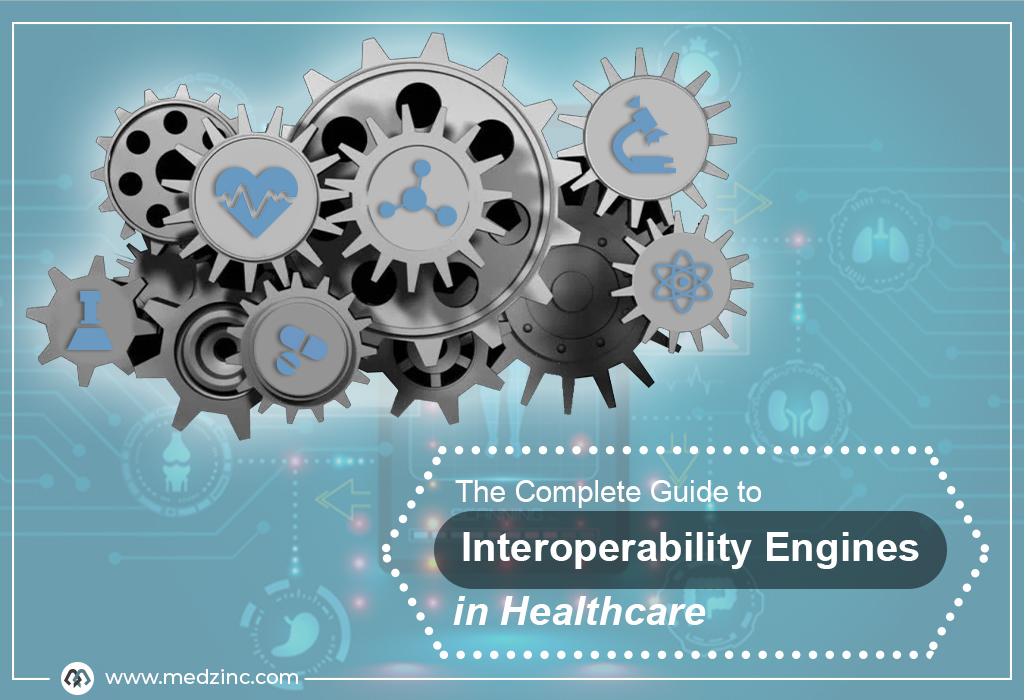
The Complete Guide to Interoperability Engines for Healthcare
The healthcare industry is one of the most complex and ever-changing industries in the world. In order to provide the best care possible, healthcare organisations must be able to share data and information seamlessly. This is where Interoperability Engines for Healthcare come in. Interoperability engines in healthcare are put forward to facilitate the exchange of data between different healthcare organisations. In this guide, we will explore everything you need to know about Interoperability Engines for Healthcare, from how they work to their benefits and drawbacks.
What is an Interoperability Engine?
An interoperability engine is a software application that enables different computer systems to exchange data with each other.Interoperability Engines for Healthcare is used to share patient information between electronic health record (EHR) systems. Interoperability engines make it possible for healthcare providers to access and share patient data from multiple EHR systems. This is important because it allows providers to have a complete picture of a patient’s medical history, which can improve the quality of care. Healthcare providers can use Interoperability Engines for Healthcare to exchange patient information with other providers, as well as with hospitals, laboratories, and pharmacies. Interoperability engines also help to exchange data with public health agencies and research organisations.
How Interoperable Systems Can Help with Amazing Use Cases
- Improved Patient Safety: One of the most important goals of any healthcare organisation is to ensure patient safety. By using Interoperability Engines for Healthcare, hospitals can more easily exchange information about patients, their conditions, and the care they are receiving. This allows for better coordination of care and helps to avoid errors and duplication of services.
- Enhanced Quality of Care: Interoperable systems also improve the quality of care that patients receive. When different types of systems are able to “talk” to each other, it becomes easier for providers to access the information they need to make informed decisions about a patient’s care. This can lead to better outcomes and a higher level of satisfaction among both patients and providers.
- Cost Savings: One of the biggest benefits of Interoperability Engines for Healthcare is that it can help to save costs associated with healthcare. When information is easily shared between different types of systems, it reduces the need for duplicate tests or procedures. It can also help to speed up processes, such as referrals, which can ultimately lead to lower overall costs for the healthcare system.
- Increased Efficiency: In addition to cost savings, interoperability can also lead to increased efficiency in healthcare organisations. When different systems are able to communicate with each other, it streamlines many processes and eliminates the need for manual data entry. This can free up staff time so that they can focus on more important tasks, such as providing direct patient care.
What are the Best Interoperability Engines for Healthcare in the Market?
There are a few different interoperability engines on the market, each with their own set of features. Here is a comparison of some of the most popular options: Healthgrades Interoperability Engine: This engine enables providers to access and exchange patient health information (PHI) with other providers, health plans, and patients. It is compliant with HIPAA and other regulations, and offers a secure way to send and receive data. MEDITECH Expanse Interoperability Engine: This engine provides bi-directional connectivity between MEDITECH Expanse EHRs and other systems. It uses HL7 messaging standards for exchanging data, and can interface with a wide variety of third-party applications. Interoperability Engine by medzinc: This Interoperability engine leverages scalable technology architecture and advanced algorithms aimed at facilitating Integrated care-management and value based care. By Simplifying the prominent healthcare interoperability challenges medzinc makes Meaningful health data readily accessible, Patient information validation electronically, Cost effective health interoperability management, and Consistent health information availability across the Network. Epic Hyperspace Interoperability Engine: This engine allows Epic customers to connect their EHRs to non-Epic systems. It uses FHIR standards for exchanging data, and has a wide range of connectors available for different applications. Cerner Millenium Integration Engine: This engine provides connectivity between Cerner EHRs and other systems. It uses HL7 messaging standards for exchanging data, and offers a wide range of adapters for different applications.
How to Choose Which Interoperability Engine Fits Your Needs?
Healthcare interoperability is the ability of different information systems and devices to connect and exchange data. It is a key enabler of patient-centred care, as it allows for the sharing of critical health information among providers, payers, and patients. There are a number of Interoperability Engines for Healthcare available on the market today, each with its own strengths and weaknesses. In order to choose the right engine for your needs, you will need to consider a number of factors, including:
- The size and complexity of your organisation: Smaller organisations may be able to get by with a less complex engine, while larger organisations will need an engine that can handle more data and users.
- The types of data need to be exchanged: Some engines are better suited for certain types of data than others. Make sure the engine you choose can handle the types of data you need to exchange.
- Your budget: Interoperability engines can vary widely in price, so it's important to find one that fits within your budget.
Once you've considered these factors, you'll be in a good position to choose an interoperability engine that fits your needs.
Start Using an Interoperable System Today to Supercharge Your Productivity
Related Post
No results.